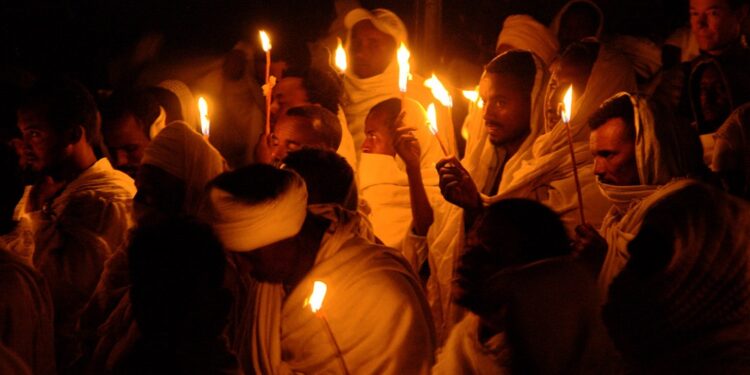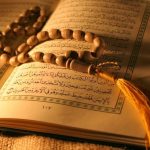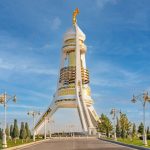
Ethiopian Christmas Day
Ethiopian Christmas Day is a holiday celebrated by the Ethiopian Orthodox Tewahedo Church, as well as several Catholic and Protestant denominations in Ethiopia. It is observed annually on January 7th because the calendar that the church uses was originally adopted from the Coptic Orthodox Church.
Christmas in Ethiopia comes at the end of a 43-day Advent fast known as the Fast of the Prophets, which begins on November 25th. During this fast, only one vegan meal per day is eaten, and eggs, wine, meat, or dairy are not allowed.
When this fast is over, people enjoy Christmas Day with their friends and family in various ways, some of which we will now explore.
The History of Ethiopian Christmas Day
Although the celebration of Christmas dates back to the very beginning of Christianity, it was not until the 4th century that the Ethiopian Orthodox Church was established. With the creation of the church came the practice of celebrating Christmas.
As most people around the world know, Christmas is a holiday that celebrates the birth of Jesus Christ. According to the official story of Christ’s birth, three wise men followed a star to find Jesus and present him with gifts.
This is why gift-giving is a major component of this holiday. Other traditions often included with this holiday stem from ancient pagan rituals that traditionally celebrated the winter solstice and the sun’s return.
Despite challenges over the years, particularly during times of political unrest or religious persecution, Christmas has remained a constant in Ethiopia. It has always been, and likely will continue to be, one of the most significant cultural and religious celebrations in Ethiopia.
Observing Ethiopian Christmas Day
After the Advent fast, Christmas arrives on January 7th. On this day, people often dress in white and attend religious services. Priests wear red and white robes and often carry fringed umbrellas that are embroidered.
Church services are usually attended in the afternoon, followed by a solemn procession. Each person is given a candle representing the star of Bethlehem and then walks three times around the church in this procession.
Then each person comes to a full stop and forms a circle. In that center circle, the church’s priest administers Holy Communion to the congregation. This marks the beginning of a period of 12 days filled with folk dancing, games, performances, and other festivities.
Many boys play a holiday game similar to hockey, called Ganna, with curved sticks and a wooden ball. This game is said to represent the shepherds tending to their flocks.
The men of Ethiopia also play a game called Yefaras Guks. Participants ride horses and throw ceremonial spears at one another in an attempt to knock their opponents off their mounts. It is a game played with much enthusiasm and can be dangerous.
Food is another major component of Ethiopian Christmas. After the 43-day fast, most people are ready for traditional Christmas fare, which often includes Injera, an Ethiopian flatbread, and Wat—a spicy stew full of meat and vegetables. The meal often concludes with a coffee ceremony.








